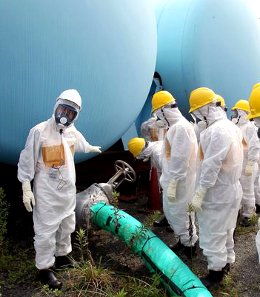Fukushima flow protested
 Japan's plan to release treated wastewater from the damaged Fukushima nuclear power plant is causing anxiety among its neighbouring countries.
Japan's plan to release treated wastewater from the damaged Fukushima nuclear power plant is causing anxiety among its neighbouring countries.
South Korea's government has endorsed the safety of a new water release plan, but hundreds of citizens have protested in Seoul, and are reportedly hoarding sea salt and other items.
Pacific Island nations have also expressed opposition over concerns about the threat to the marine environment and public health.
China has tightened its scrutiny of food from Japan and called for a boycott of Japanese exports.
The International Atomic Energy Agency (IAEA) conducted a two-year review and found that Japan's plan would have minimal environmental impact, but China has criticised the report for not reflecting all expert views.
While some experts dismissed fears as propaganda, citizens are boycotting Japanese products to pressure the government.
Despite reassurances from experts, some scientists are still urging alternative disposal methods.
Japanese officials this week visited the Fukushima plant to emphasise safety and address reputational damage, while the government defended the IAEA report's neutrality.
The government aims to start releasing the water within weeks.








 Print
Print